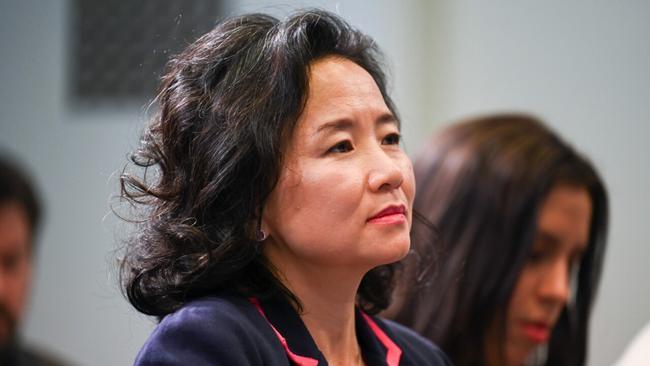Lessons from the US on dealing with arbitrary detention
Posted By Tasfia Zeba on July 4, 2024 @ 11:00

Australia has an opportunity to improve its responses to foreign arbitrary detention by studying the extensive and permanent apparatus that the United States has developed.
The Australian government last year established a special committee in the Department of Foreign Affairs and Trade to handle complex consular cases, which will cover those in which Australians are arbitrarily detained. But Australia can go further, with two steps. It should implement a formal framework to identify and handle these cases, and it should establish a permanent office focused on them.
This would, for example, avoid the problems faced by the Australian-British academic Kylie Moore-Gilbert, who was arrested in Iran in 2018 on fabricated charges of espionage but whose case was treated as a mere consular matter and not identified as arbitrary arrest for several months. To secure Moore-Gilbert’s release, Australia had to facilitate the swapping of two Iranian prisoners held in Thailand. It was, indeed, a high-level diplomatic issue.
Arbitrary detention amounts to hostage diplomacy when the detaining state is trying to extract some concession from the detainee’s state or to punish it for something it has done. Chinese and Iranian cases have been clear examples of this. The Australian journalist Cheng Lei [1] had been working for China’s state broadcaster CGTN when in 2020 she vanished from public view, detained by Chinese authorities on unspecified charges. This occurred at a time when China was punishing Australia for diplomatic action that had displeased it.
Months later, it was revealed that Cheng was being held under harsh ‘residential surveillance at a designated location’—a euphemism for a secret detention facility. After she had been held for nearly 19 months, she was tried in a closed session at the Beijing Number 2 People’s Intermediate Court, where Australian officials were denied access due to ‘national security’ concerns.
Michael Spavor and Michael Kovrig faced a similar ordeal. The two Canadian citizens—a businessman and former diplomat, respectively—were detained in China in 2018 just days after Canada arrested Meng Wanzhou, a top executive at Chinese tech giant Huawei. The message was clear: China wanted Canada to release Meng.
Recognising the danger of hostage diplomacy, Canada promoted the Declaration [2] Against Arbitrary Detention in State-to-State Relations in 2021, which Australia has signed up to.
Like the setting up of the Complex Case Committee, that was a positive step for Australia, but the declaration’s non-binding nature raises doubts about its value. It cannot implement effective deterrence measures.
Australia needs to sharpen its strategy to be well prepared and take firm stands against instances of arbitrary detention. Above all, that means not leaving them languish in consular processes when they need fast and higher-level attention.
Hostage-taking states hide behind the veil of sovereignty, arguing that, under local laws, detainees are not wrongfully held. This is the challenge that must be overcome by establishing a framework for identifying cases, as the United States has done with its US Robert Levinson Hostage Recovery and Hostage-taking Accountability Act [3] of 2020. Its criteria include availability of credible evidence of the detainee’s innocence, the possibility that the detaining country is trying to influence US policy, and a lack of an independent judiciary in that country.
Defining such a framework would be an early job for a dedicated office within the Australian Department of Foreign Affairs and Trade. The office would also handle the cases, with the effectiveness of a permanent and specialised agency, following the practice of the US Office the Special Presidential Envoy for Hostage Affairs (SPEHA [4]).
The less optimally Australia handles cases of arbitrary detention, the more emboldened are perpetrators. If not effectively handled, their malign behaviour may result in no negative consequences for them and, indeed, could reward them.
Australian diplomats should initiate discussions with their US counterparts to gain a better understanding of the SPEHA’s structure, function and achievements. Based on that knowledge, the department could tailor and model a separate dedicated office to best suit the specific needs of Australian citizens caught in arbitrary detention.
Now that state hostage-taking has become an established practice, Australia needs a well-founded and permanent mechanism for responding to it. Its great advantage is that the United States has already taken such steps. Australia just needs to look at the methods that Washington has adopted.
Article printed from The Strategist: https://aspistrategist.ru
URL to article: /lessons-from-the-us-on-dealing-with-arbitrary-detention/
URLs in this post:
[1] Cheng Lei: https://www.abc.net.au/news/2023-10-25/cheng-lei-speaks-out-730-china-journalist/103014128
[2] Declaration: https://www.international.gc.ca/world-monde/issues_development-enjeux_developpement/human_rights-droits_homme/arbitrary_detention-detention_arbitraire.aspx?lang=eng
[3] Act: https://www.congress.gov/bill/116th-congress/senate-bill/712/text
[4] SPEHA: https://www.state.gov/leadership-special-presidential-envoy-for-hostage-affairs/
Click here to print.